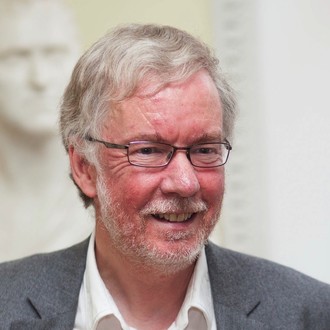Brian Clegg is an English science writer best known for his popular science books covering various topics, including infinity, quantum entanglement, and climate change. His engaging and accessible writing style has made him a prominent figure in science communication. Clegg's work has received awards, including the IVCA Clarion Award for Ecologic.
Brian Clegg was born and raised in Rochdale, Lancashire. He attends Manchester Grammar School and the University of Cambridge. Clegg studied natural sciences with an emphasis on experimental physics.
After earning his degree, Brian continued his academic journey at Lancaster University, obtaining a second MA in Operational Research. This discipline, initially developed during World War II to apply mathematical and probabilistic analysis to warfare, has since found applications in business problem-solving.
Clegg's professional career began at British Airways, where he established a new department dedicated to developing high-tech solutions for the airline. His role at BA included setting up the Emerging Technologies Group, which explored innovations ranging from fingerprint recognition to electronic cash. Inspired by his work with creativity expert Dr Edward de Bono, Clegg left British Airways in 1994 to found his creativity consultancy. "I wanted to help businesses think differently and find innovative solutions to their challenges," Clegg noted in an interview.
He has worked with numerous clients, including the BBC, the Met Office, Sony, GlaxoSmithKline, the UK Treasury, and the Royal Bank of Scotland. Through his consultancy, he developed practical solutions to problems across different industries.
Clegg has authored numerous popular science books since transitioning from consultancy to full-time writing. His works, such as A Brief History of Infinity (2003) and Dice World (2013), have been translated into multiple languages, reaching a global audience. He also writes regular columns and features for publications including Nature, BBC Focus, The Times, and The Wall Street Journal.
His writing style, characterized by clarity and accessibility, appeals to scientists and general readers.
Clegg's reputation as an engaging speaker is well-established, with sell-out lectures at prestigious venues such as the Royal Institution in London. He has spoken at universities, science festivals, and on various radio and TV programs. In a notable television appearance, he joined BBC's Robert Peston to discuss quantum theory.
In addition to his writing and speaking engagements, Clegg is a Royal Literary Fund Fellow at Bristol University and serves as the editor of the popular science book review website www.popularscience.co.uk.
His latest book, Weather Science (2024), explores the science behind weather patterns, the role of mathematical chaos in weather forecasting, and the use of supercomputers in meteorology.
Brian Clegg lives in Wiltshire with his wife and children.
Photo credit: www.brianclegg.net

